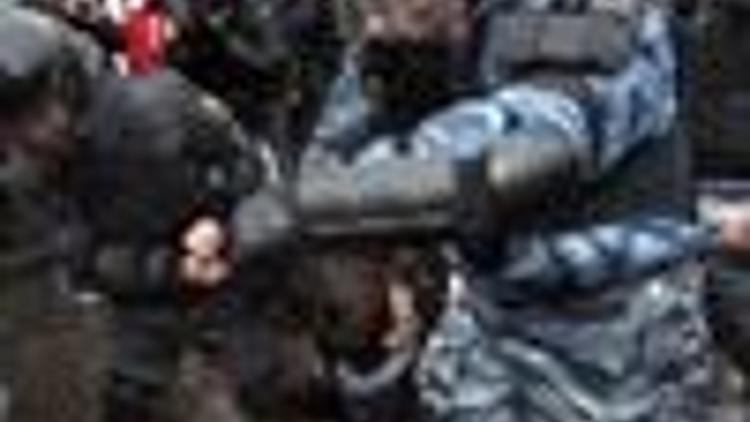Russian election lacked ''freedom'', monitor Says
Güncelleme Tarihi:

The head of the only major Western monitoring group that sent a team to Russia to observe Sunday's presidential election severely criticized the process Monday, drawing a furious rebuttal from the country's Central Election Commission.
Officials in Washington and Western European capitals, meanwhile, expressed muted disappointment with the conduct of the vote as well as hope that the new presidency would bring a shift in ideas and better relations with their governments. "We think there is not freedom in this election," said Andreas Gross of the Western monitoring group, after Dmitry Medvedev, President Vladimir Putin's handpicked successor, scored an officially tabulated win of more than 70 percent of the vote. �
Gross, heading a delegation from the Parliamentary Assembly of the Council of Europe, the continent's leading human rights organization, cited media bias and Russia's failure to register some candidates, among other shortcomings. In a statement, the group said the result reflected the "will of an electorate whose democratic potential was unfortunately not tapped."
Vladimir Churov, head of Russia's Central Election Commission, ridiculed the criticism. "What should I do, should I make CEC members work naked?" he said in televised remarks. "I am unaware of a document which would outline a procedure for the use of democratic potential." The commission reported a record turnout of 69.7 percent of Russia's 109 million voters. An independent Russian monitoring group echoed the European criticism and argued that Medvedev didn't need overwhelming media coverage and the use of state resources, including alleged ballot-stuffing and the pressuring of state workers, to ensure victory. "Medvedev could have calmly and honestly won this election . . . albeit with a more modest result," said Alexander Kynev of the Russian group Golos.
Europe's leading election watchdog group, the Organization for Security and Cooperation in Europe, did not send observers, citing severe restrictions that Russian authorities planned to place on its work.
Riot police on Monday detained dozens of opposition activists protesting the election and calling Medvedev's overwhelming victory a "farce." The rally had been banned by Moscow authorities. Among those detained were Nikita Belykh, leader of the small Union of Right Forces party, and Lev Ponomaryov, a well-known human rights activist.
Medvedev, 42, who is first deputy prime minister, will assume the presidency on May 7. At a government meeting Monday in the Kremlin, Putin, who is expected to become prime minister, said the two would begin working immediately on the handover. "Esteemed Dmitry Anatolyevich, I congratulate you again on your confident victory in the presidential election," said Putin, using Medvedev's patronymic. "In early May, in accordance with the law, the president-elect will be inaugurated. Prior to this, as we agreed, we'll jointly prepare the structures of the executive authority."
U.S. State Department spokesman Tom Casey noted Monday that American officials had previously expressed concerns about Russia's direction away from democracy. "I don't think those concerns were in any way changed by these elections," Casey said. "We'll have to see what new politics or ideas he brings to office." "Dmitry Medvedev is now the president-elect of Russia, will soon be the president of Russia," said National Security Council spokesman Gordon Johndroe, speaking to reporters. President Bush "looks forward to working with him."
British Prime Minister Gordon Brown congratulated Medvedev and expressed hope for a repair of relations that sank to a new low after the Kremlin refused to hand over a suspect in the 2006 poisoning death of former Russian security officer Alexander Litvinenko in London, the Associated Press reported. European Commission President Jos¿ Manuel Barroso, meanwhile, said he hoped that under Medvedev's leadership, Russia and the European Union could develop a relationship based on "respect for the values to which we both declared our commitment."

